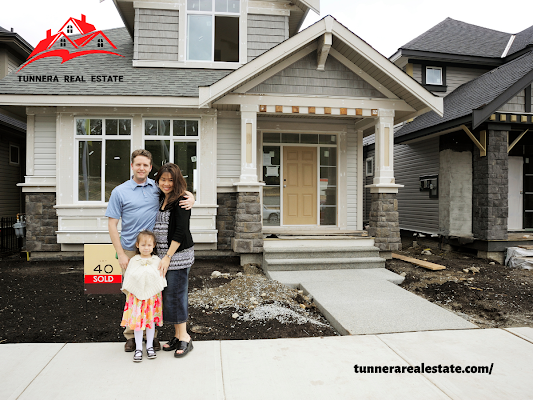Why is the value of my house important?
It is important to know the value of your house in order to make an informed decision about whether or not you want to sell it. There are many reasons why the value of your house could be different than what has been estimated by a real estate agent, and this article will explore some of these reasons. It may also help you gain more insight into how much home improvements can affect your property’s value. The first thing that affects the price of a home is its location. This means that homes in certain areas tend to sell for more or less than other homes in other locations because they are located near desirable amenities, have better schools nearby, etcetera.
Homes with large backyards, which are becoming scarce these days due to population growth, tend to sell for more than homes without backyards. This is because many people prefer a bigger backyard and are willing to pay more for it. The location of your house also affects the value of surrounding properties in the surrounding area. If other houses in your street start selling for less than what you paid for yours – even if they were previously listed at higher prices – then you can expect that your house will be valued lower as well.
The value of your house will determine the amount you pay in taxes
The value of your house will determine the amount you pay in taxes. The tax rate on a property is determined by its assessed value, which is based on an appraisal. Assessed values are calculated annually and then multiplied by the mill rate to derive the tax bill. Your county or city government determines how much each mill generates for revenue and sets that as the mill rate. There’s some variation among municipalities but most use a 10-mill levy with exceptions made for new construction, renovation of existing structures, and properties within certain geographic zones (such as downtown areas). Mill rates can be set at different levels depending on what level of service is desired from local governments.
Start with the basics - find out what you can afford.
To start your house hunting in Marlborough, it’s important to understand what kind of budget you’re working with. Many people make the mistake of overestimating how much money they’ll be able to spend on a new home. Do yourself a favor and talk to a lender about what dreams you can afford to make real. They’ll help you determine what you can afford and even find the best possible loan for your circumstances.
Once you know what kind of budget you have to work with, the sky’s the limit. Talk to your real estate agent about your price range and geographical preferences. You can also ask them things like how close to a highway or school are important factors to consider in finding your dream home? What are some desirable neighborhoods? How long is the commute?
The value of your house is important for mortgage loans and other types of financing
If you are trying to obtain a mortgage loan or other type of financing, the value of your home is important. A home’s value can be determined by looking at how much it would cost to rebuild your house if it were destroyed (the cost-to-rebuild method). The property’s current appraised market value also matters, as well as the number and quality of recent comparable sales in the area. Still another way that people determine a home’s worth is by looking at its replacement costs – basically, what it would take to buy an identical house nearby. This approach doesn’t take into account any improvements made to the property since purchase but does provide an estimate for insurance purposes.
Your home's value will affect how much insurance you need to buy
If you are considering purchasing a home, it is important to have an idea of how much insurance coverage you will need. Insurance companies come in all shapes and sizes and offer many different types of policies, so it can be difficult to find the right one for your needs. Two factors influence the type of policy: location and construction quality. The less expensive policies provide fewer benefits than more expensive ones do. However, if you live in a high-risk area or want to protect yourself from damages caused by natural disasters such as hurricanes or floods, then you may want the protection offered by the more expensive plans. This article should give some helpful advice on what type of insurance coverage might work best for your situation based on where you live.
If your property is worth less than what you paid for it
There are many reasons why your property might be worth less than what you paid for it. If the market is in a slump, then that could be one of them; if your region is out of favor with investors, this could also contribute to an issue with value. If there’s any chance that you may not be able to afford the mortgage payment on your home, it’s important to find out as soon as possible so you can either come up with a solution or start looking for another place to live.
There are two ways to do this: Either try refinancing and see if interest rates have fallen enough since you bought the house, or just take over payments yourself until things stabilize again. You won’t want anything bad like foreclosure or bankruptcy to hit your credit report while you’re dealing with the problem. With so many variables affecting properties, it’s difficult to determine when a property has lost value. However, once again, there are two ways of assessing this loss of value: refinancing at lower interest rates or taking out a private loan to continue making payments on the original property. If this is done quickly before foreclosure or bankruptcy hits your credit report, then it won’t hurt your score.
Knowing the current market price of a property when deciding whether to sell or acquire a new home
The market price of a property is an important factor in deciding whether to sell or acquire a new home. If you know the current market value for buying and selling, then you can make an educated decision on what your next move should be. Knowing the prices will help you decide if it’s time to buy now, wait for lower prices, or keep renting. Property values depend on several factors: location and amenities; recent sales data; and appreciation trends over many years. -The article discusses how knowing the market price helps people make decisions about buying homes with ease because they’ll have access to information that can help them do so without stress.
If a home has more Features, it is usually valued higher.
Home values are usually higher if they have more bedrooms, bathrooms, garage space, land size, and original features like hardwood floors. Homebuyers pay a premium for these amenities because they feel that the home will be worth more in the future. The problem is that not all homeowners can afford to upgrade their homes to meet this criterion. They might need to take out loans or sell off other assets to make improvements- which can lead to debt or depression.


